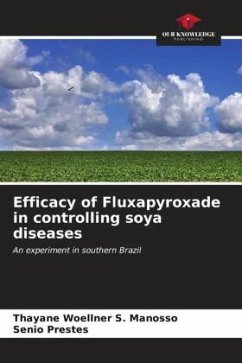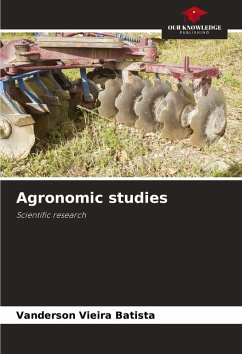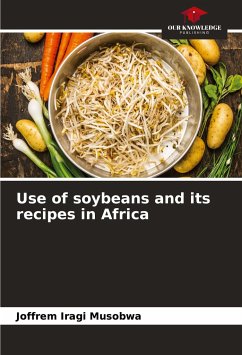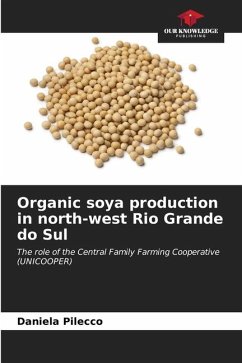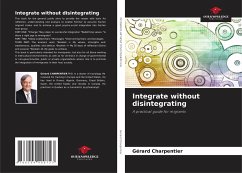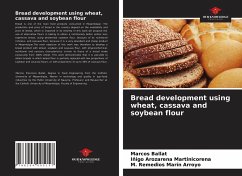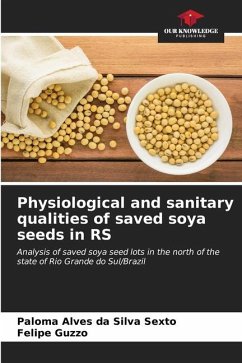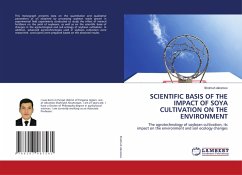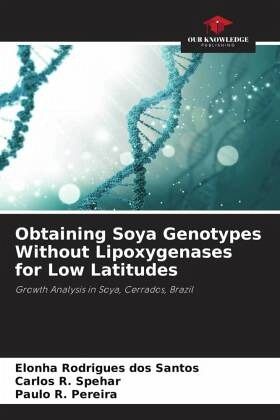
Obtaining Soya Genotypes Without Lipoxygenases for Low Latitudes
Growth Analysis in Soya, Cerrados, Brazil
Versandkostenfrei!
Versandfertig in 6-10 Tagen
43,99 €
inkl. MwSt.

PAYBACK Punkte
22 °P sammeln!
Growth analysis is effective in assessing the biological response of soya when introduced at low latitudes. The analysis of genetic components showed a high probability of gains by selection, as evidenced by the high heritability values, CVg/CVe in the hybrid populations, with favourable selection for number of days to maturity, plant height, number of pods per plant and yield. Environmental influence hinders selection for pod height. The correlations showed that it is possible to make indirect selections for those characters with lower heritability in order to obtain desirable genotypes. Hybr...
Growth analysis is effective in assessing the biological response of soya when introduced at low latitudes. The analysis of genetic components showed a high probability of gains by selection, as evidenced by the high heritability values, CVg/CVe in the hybrid populations, with favourable selection for number of days to maturity, plant height, number of pods per plant and yield. Environmental influence hinders selection for pod height. The correlations showed that it is possible to make indirect selections for those characters with lower heritability in order to obtain desirable genotypes. Hybridisation between soya cultivars with a long juvenile period and cultivars lacking lipoxygenases gave rise, in the F2 generation, to 35 soya progenies with a long juvenile period, a height of more than 70 cm and lacking lipoxygenases with the potential to be advanced and launched as a cultivar in the Federal District and lower latitudes in Brazil.



